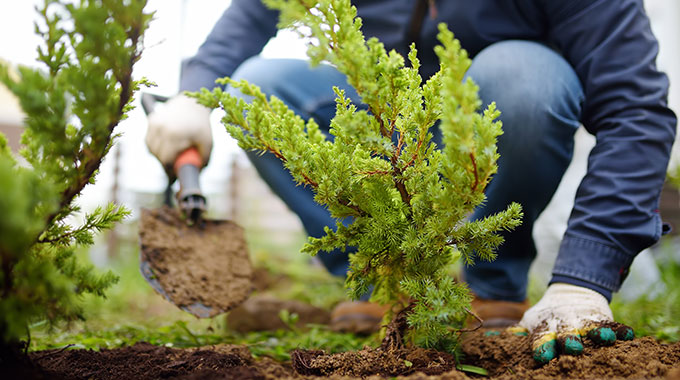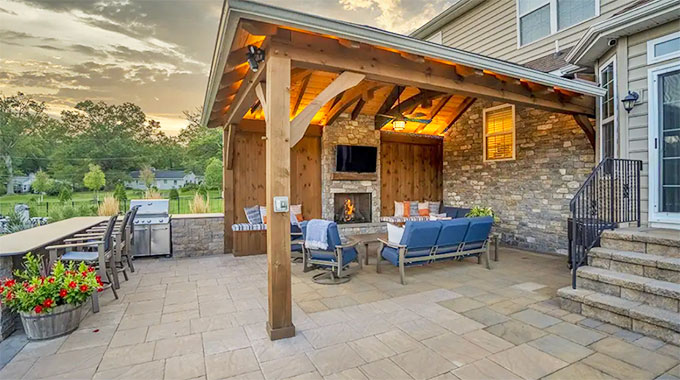Fall Is For Planting
Blog, Newsletters | 10.06.24
Your landscape can be broken down into two main categories: hardscapes, which are all the solid and permanent elements like patios, walkways and walls, and softscapes, which are all the living elements like trees, shrubs, and annual and perennial plants.
Over time, the softscapes on your property can become overgrown for their space, crowding walkways and blocking windows. If the plantings in your landscape are due for a refresh, fall is a great time to tackle landscape renovations.

From the entryway to the driveway, and from ground cover to lawns, fall is for planting!
Most homeowners think of spring as the best time to plant, but there are several compelling reasons why autumn is the ideal season for adding softscaping to your property.
Plants Prefer Fall Temperatures: In autumn, the soil retains warmth, which is great for root development, while cooler air temperatures reduce heat stress on the above-ground portions of the plant.
Fall Is Prime Time for Root Growth: As temperatures cool, plants shift their efforts away from top growth and toward root growth. This natural shift in plant growth behavior helps new plants establish a stronger root system before winter.
Reduced Pest Issues: Pests and insects tend to be less active in the fall, further reducing stress to new plantings.
Plan Now For Hardscape Additions
The term “hardscaping” refers to landscaping features that are permanently established and typically nonliving. Patios, water elements, fire pits and outdoor shelters all fall into this category. Hardscaping additions can transform an underused area of your property into an inviting living space which allows your family and friends to fully enjoy the warmer months.

With a little help, your backyard can become a personal vacation destination.
The key to getting the most out of your hardscaping is proper planning. The first step in effective planning is to decide what you want from your new space. You may want a quiet retreat, a place to host large gatherings, or an area that can be a little of both.
